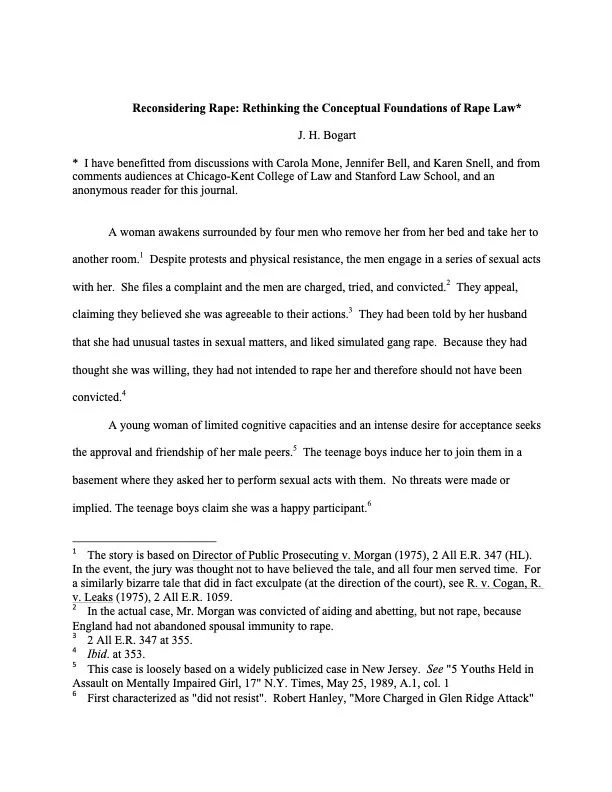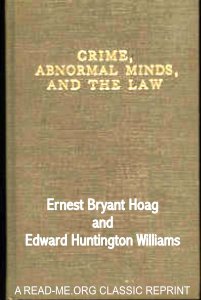By J. H. Bogart
A woman awakens surrounded by four men who remove her from her bed and take her to another room.1 Despite protests and physical resistance, the men engage in a series of sexual acts with her. She files a complaint and the men are charged, tried, and convicted.2 They appeal, claiming they believed she was agreeable to their actions.3 They had been told by her husband that she had unusual tastes in sexual matters, and liked simulated gang rape. Because they had thought she was willing, they had not intended to rape her and therefore should not have been convicted.4 A young woman of limited cognitive capacities and an intense desire for acceptance seeks the approval and friendship of her male peers.5 The teenage boys induce her to join them in a basement where they asked her to perform sexual acts with them. No threats were made or implied. The teenage boys claim she was a happy participant.6
39p.









